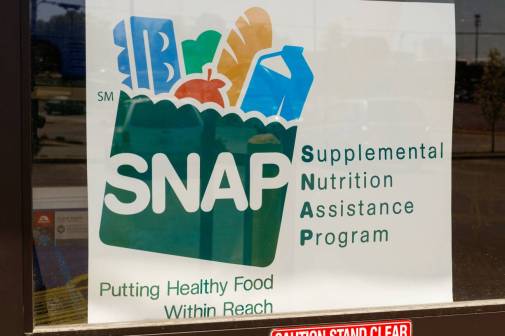CDOs should be more involved in states’ economic recovery, researchers say

States’ chief data officers should play a much larger role in the economic recovery from the coronavirus pandemic, according to a report published this week by the Beeck Center for Social Impact and Innovation at Georgetown University that outlines use cases for the integration of data into workforce initiatives, public and community health care systems and budget allocation.
The report, “Leveraging Data for Economic Recovery: A Roadmap for States,” draws expertise from more than a dozen interviews with subject matter experts and officials in health care, childhood education, broadband, social benefits systems and other policy areas. Written by Connecticut’s former chief data officer and current director the Beeck Center’s CDO network, Tyler Kleykamp, and Beeck Center researcher Katya Abazajian, the report offers data-centric use cases and recommendations for state legislators, policymakers and governors that might not be aware of how data can help solve a problem like workforce reskilling.
The recommendations, which include making sure that workforce development agencies regularly update their data on the employment needs of different industries, are written in a way that any state agency could implement them into its governance structure, Abazajian told StateScoop.
“A lot of states are early in the process of building out comprehensive data strategies, so we wanted to highlight things that states could replicate across each other,” she said.
Abazajian said the report was initially meant to focus on the highest priorities of state governments as referenced by governors during their State of the State addresses earlier this year, but the coronavirus pandemic quickly shifted its focus to helping state governments recover economically; a quarter of the report is dedicated to helping agencies involve a CDO in budget allocation as states stare down lost revenue figures. According to the D.C.-based think tank Center on Budget and Policy Priorities, states will collectively face $555 billion in budget shortfalls for the 2020-2022 fiscal years.
Among its recommendations, the Beeck Center report encourages CDOs to help their states identify where they can move physical government services online. It also says states should track exactly where each dollar of federal or private relief aid is going to ensure that recovery programs and initiatives are worthwhile.
“Data officers should be prepared to make a strong, data-driven case for which programs are costing the state more than they are worth and which programs are struggling due to a need for deeper investment,” the report reads. “States will need to make big-ticket investments or significant cutbacks in policy areas that weren’t previously a focus.”
Each of the report’s recommendations are ranked by how complex they would be for a state agency to implement and include first steps for a CDO to take in initiating them, like supporting mapping efforts to identify where broadband is lacking statewide or identifying public-private partnerships to expand digital inclusion initiatives in underserved areas. Kleykamp said a highly complex use case, for example, might require deep subject-matter expertise or a higher degree of coordination in establishing data-sharing agreements, while a lower complexity effort might suggest simply publishing more open data.
But because many states are still using a model of economic recovery that predates the chief data officer position, Abazajian said it was important to include the small steps that an administration can take to become more data-driven alongside mention of larger initiatives.
“When it comes to working on some of these policy issues, you have to have both the policy expertise and the data expertise,” she said.






